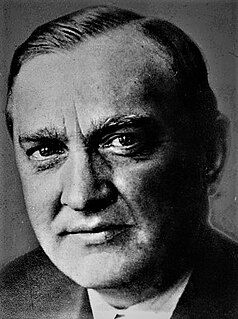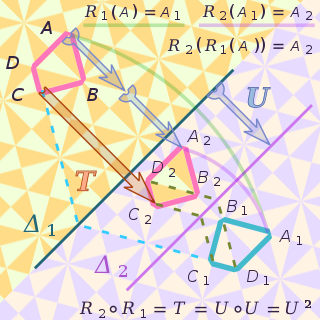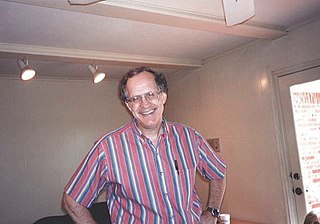In mathematics, more specifically in functional analysis, a Banach space is a complete normed vector space. Thus, a Banach space is a vector space with a metric that allows the computation of vector length and distance between vectors and is complete in the sense that a Cauchy sequence of vectors always converges to a well defined limit that is within the space.
In mathematics, especially functional analysis, a Banach algebra, named after Stefan Banach, is an associative algebra A over the real or complex numbers that at the same time is also a Banach space, that is, a normed space that is complete in the metric induced by the norm. The norm is required to satisfy

Functional analysis is a branch of mathematical analysis, the core of which is formed by the study of vector spaces endowed with some kind of limit-related structure and the linear functions defined on these spaces and respecting these structures in a suitable sense. The historical roots of functional analysis lie in the study of spaces of functions and the formulation of properties of transformations of functions such as the Fourier transform as transformations defining continuous, unitary etc. operators between function spaces. This point of view turned out to be particularly useful for the study of differential and integral equations.
In mathematics, a topological space is called separable if it contains a countable, dense subset; that is, there exists a sequence of elements of the space such that every nonempty open subset of the space contains at least one element of the sequence.

Stefan Banach was a Polish mathematician who is generally considered one of the 20th century's most important and influential mathematicians. He was the founder of modern functional analysis, and an original member of the Lwów School of Mathematics. His major work was the 1932 book, Théorie des opérations linéaires, the first monograph on the general theory of functional analysis.

In mathematics, physics, and engineering, a vector space is a set whose elements, often called vectors, may be added together and multiplied ("scaled") by numbers called scalars. Scalars are often real numbers, but can be complex numbers or, more generally, elements of any field. The operations of vector addition and scalar multiplication must satisfy certain requirements, called vector axioms. The terms real vector space and complex vector space are often used to specify the nature of the scalars: real coordinate space or complex coordinate space.

In mathematics, an isometry is a distance-preserving transformation between metric spaces, usually assumed to be bijective.
In mathematics, the Gelfand representation in functional analysis is either of two things:

Stanisław Mieczysław Mazur was a Polish mathematician and a member of the Polish Academy of Sciences.
In mathematics, a normed algebraA is an algebra over a field which has a sub-multiplicative norm:
In mathematics, the corona theorem is a result about the spectrum of the bounded holomorphic functions on the open unit disc, conjectured by Kakutani (1941) and proved by Lennart Carleson (1962).
In functional analysis, a field of mathematics, the Banach–Mazur theorem is a theorem roughly stating that most well-behaved normed spaces are subspaces of the space of continuous paths. It is named after Stefan Banach and Stanisław Mazur.

Per H. Enflo is a Swedish mathematician working primarily in functional analysis, a field in which he solved problems that had been considered fundamental. Three of these problems had been open for more than forty years:
In operator theory, the Gelfand–Mazur theorem is a theorem named after Israel Gelfand and Stanisław Mazur which states that a Banach algebra with unit over the complex numbers in which every nonzero element is invertible is isometrically isomorphic to the complex numbers, i. e., the only complex Banach algebra that is a division algebra is the complex numbers C.
In mathematics, the Banach–Stone theorem is a classical result in the theory of continuous functions on topological spaces, named after the mathematicians Stefan Banach and Marshall Stone.

Robert Stuart Doran is an American mathematician. He held the John William and Helen Stubbs Potter Professorship in mathematics at Texas Christian University (TCU) from 1995 until his retirement in 2016. Doran served as chair of the TCU mathematics department for 21 years. He has also held visiting appointments at the Massachusetts Institute of Technology, the University of Oxford, and the Institute for Advanced Study. He was elected to the board of trustees of the Association of Members of the Institute for Advanced Study, serving as president of the organization for 10 years. He has been an editor for the Encyclopedia of Mathematics and its Applications, Cambridge University Press, a position he has held since 1988. Doran is known for his research-level books, his award-winning teaching, and for his solution to a long-standing open problem due to Irving Kaplansky on a symmetric *-algebra.
This is a glossary for the terminology in a mathematical field of functional analysis.